Did you know that Qatar—a nation with just under 3 million people—has brokered more major peace agreements in the last decade than some of its larger Middle Eastern neighbors? Behind the high-profile headlines, Qatar international relations operate with a finesse and ambition that transcends its small geographic size. From mediating in war-torn regions to quietly shaping global partnerships, Qatar’s diplomatic efforts are surprisingly expansive. This article explores the hidden machinery of Qatar international relations, revealing how its leaders, strategic choices, and innovative approaches have quietly transformed its standing on the world stage. Read on to discover what most people don’t know about the burgeoning power of Qatar’s diplomacy—and why it matters for the future of international affairs.
A Surprising Perspective on Qatar International Relations: Beyond the Headlines
When most people think of Qatar international relations, what comes to mind is often shaped by headline-making events—such as world-class sporting events or publicized diplomatic spats with neighbors like the United Arab Emirates. Yet, the true story of Qatar’s international engagement goes far deeper and is full of nuance. For example, Qatar has quietly positioned itself as an indispensable mediator in some of the world’s thorniest disputes, including facilitating dialogue between rival Palestinian factions and between the United States and the Taliban. These efforts frequently fly under the media radar but have fundamentally redefined the way global powers perceive the state of Qatar.
Practical examples of this diplomatic acumen abound. Qatar’s unique ability to maintain working relationships with countries and groups across the spectrum—from the United Nations to non-state actors—enables it to bridge gaps others cannot. Its diplomatic missions in places like Sudan and Afghanistan are critical nodes in international peacemaking, demonstrating that influence is not solely about economic or military might. Instead, Qatar leverages its resources, such as energy diplomacy, and its historically neutral stance, to act as an honest broker in regional and global affairs, shaping outcomes that might otherwise be unreachable.

Examining the Unexpected: An Unconventional Fact About Qatar’s Diplomatic Reach
One of the most unconventional facts about Qatar’s diplomatic reach lies in its ability to maintain relations with fiercely opposed nations simultaneously. While many regional powers have clear alliances, Qatar has managed to have embassies both in Tehran and in western capitals—a feat few others can boast. This strategy of multi-vector diplomacy has enabled it to act as a channel for dialogue where traditional diplomatic lines have broken down. Even during the 2017 Gulf blockade, when the Gulf Cooperation Council fractured, Qatar’s ties with global actors remained steadfast.
Under the guidance of key figures like Sheikh Tamim bin Hamad Al Thani and the strategic steer of the foreign minister, Qatar’s approach has been anything but static. Continuing to innovate, they expanded humanitarian efforts, orchestrated airlifts for refugees, and brokered ceasefires in far-flung regions. These lesser-known endeavors reveal a resilient and creative aspect to foreign affairs in Qatar—one shaped by adaptability, dialogue, and a quiet resolve.
How Qatar International Relations Redefine Global Diplomacy
Qatar international relations have fundamentally challenged traditional definitions of diplomacy. By cultivating both high-level state ties and grassroots humanitarian programs, the nation has emerged as an agent of soft power, promoting stability and cooperation. For instance, Qatar’s renowned mediation in the 2020 Afghanistan peace talks exemplified its unique role—a balancing act that required credibility with disparate actors and unwavering neutrality.
Video Summary: (A concise, professional explainer video would be embedded here, visually depicting Qatar’s mediation roles, diplomatic missions, and global partnerships with animated maps and infographics.)
The Role of the Foreign Minister in Elevating Qatar’s International Status
The foreign minister of Qatar has played a transformative role in catapulting its diplomatic profile. From championing multilateral dialogue at the United Nations to forging critical ties with international powers, this role blends tradition with innovation. The foreign minister not only represents Qatar’s interests abroad but also acts as a central strategist in recalibrating the nation’s foreign policy during times of regional crisis or opportunity.
Moreover, initiatives championed by the foreign minister—such as global humanitarian partnerships and hosting back-channel negotiations—demonstrate a relentless focus on peace and development. The creation of platforms for international exchange, many broadcast from Doha, has further positioned Qatar as a thought leader in 21st-century diplomacy. These efforts underscore the impact of the foreign minister’s vision in shaping both regional and global perceptions of Qatar.
- Middle East mediation efforts led by Qatar international relations
- Strategic partnerships shaped by Qatar’s foreign affairs
- Global humanitarian initiatives spearheaded by Qatari diplomats
Key Drivers Influencing Qatar International Relations
The machinery behind Qatar international relations is powered by an intricate blend of historic legacies, visionary leadership, and astute economic strategy. Unlike many of its neighbors, Qatar has successfully insulated its diplomacy from volatile domestic politics, leveraging continuity of leadership within the royal family and a clear, long-term foreign policy vision.
Simultaneously, Qatar’s vast energy resources have gifted it leverage that extends far beyond its small size. Through strategic investments, sovereign wealth funds, and targeted economic diplomacy, the state secures not just economic partnerships but mutual political goodwill. These relationships—carefully curated and managed—form the backbone of Qatar’s influence on the world stage, ensuring its relevance and reach endure even in uncertain times.
Al Thani Family Legacy in Foreign Affairs
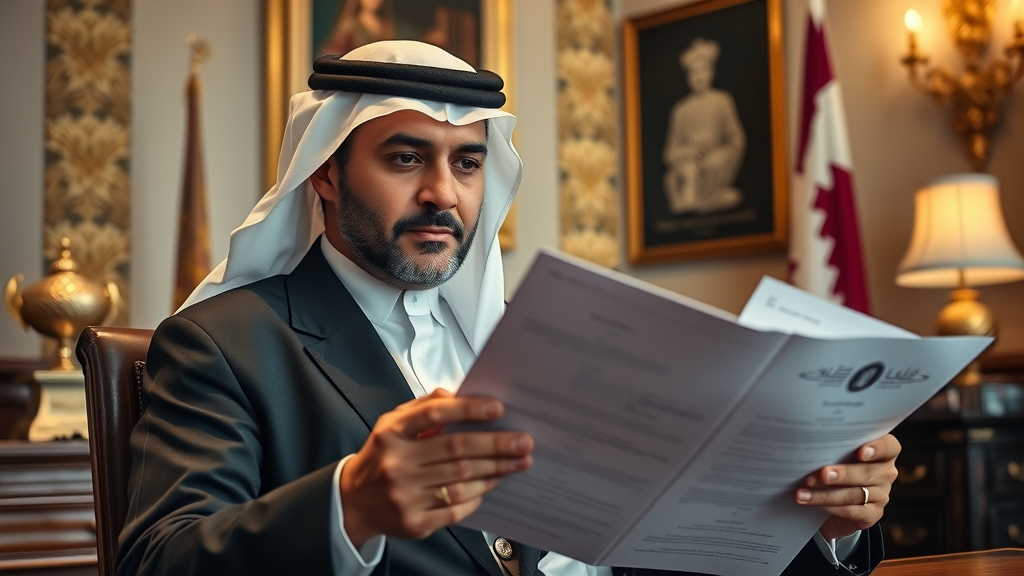
The Al Thani family, rulers of the state of Qatar for over a century, imbue every aspect of the nation’s global strategy. Figures like Sheikh Tamim bin Hamad Al Thani have personified a new era of diplomacy—one defined by outreach, innovation, and a commitment to dialogue. The legacy of Hamad Al Thani as a pioneer in forging global partnerships continues to inform decision-making at the highest levels.
This dynastic approach not only preserves institutional memory but allows Qatar to act with rare agility on the world stage. The Al Thani family’s unbroken rule brings continuity to foreign affairs—a key differentiator from more volatile neighboring states. Through initiatives like the Qatar Foundation, the family has seamlessly fused cultural, educational, and diplomatic dimensions into a cohesive foreign policy that influences the region and beyond.
Energy Diplomacy and Economic Interests in Qatar International Relations
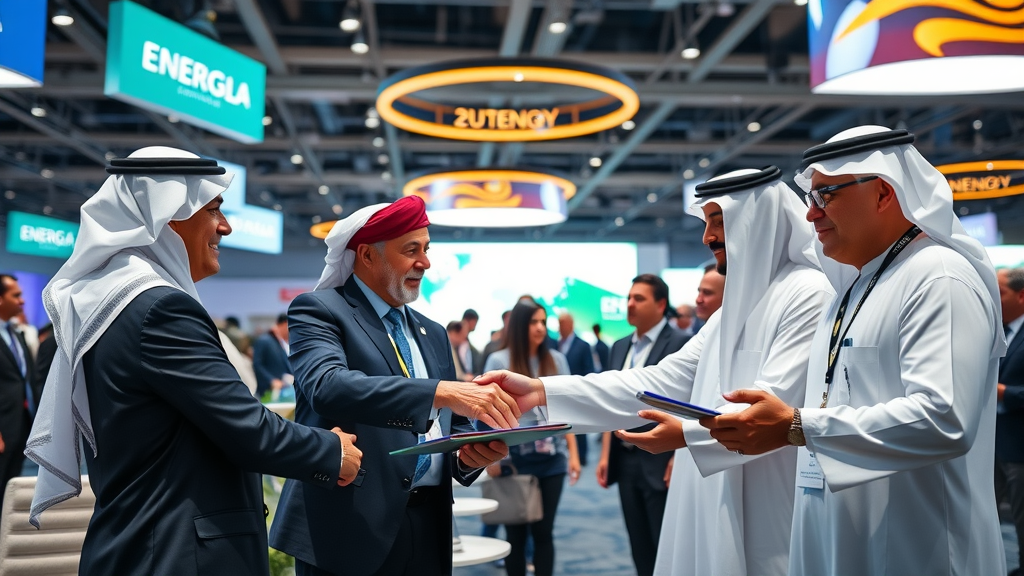
Energy diplomacy is the linchpin of Qatar’s economic prowess. As the world’s top exporter of liquefied natural gas, Qatar uses its energy wealth as both carrot and shield, forging mutually beneficial partnerships with global powers and regional blocs. For example, long-term supply agreements with Asia and Europe have afforded Qatar critical influence during energy crises and have underpinned its global economic reach.
These partnerships do not emerge from economics alone; they are carefully choreographed exercises in political strategy. By reinvesting proceeds from energy into international education, infrastructure projects, and peacebuilding, Qatar distinguishes its form of economic engagement from mere transactional exchange. In doing so, the country has built a reputation not just as a supplier of energy, but as a reliable partner in development and stability.
| Major Diplomatic Achievements of Qatar International Relations | Year | Impact |
|---|---|---|
| Brokered U.S.-Taliban Peace Talks | 2020 | Paved way for U.S. troop withdrawal and intra-Afghan negotiations |
| Host of Gulf Cooperation Council Reconciliation | 2021 | Ended Gulf rift, resumed intra-GCC cooperation |
| Humanitarian Airlifts from Afghanistan | 2021 | Evacuated thousands, showcasing crisis-response capacity |
| Qatar-Sudan Peace Mediation | 2011 | Secured ceasefire, advanced peace in Darfur |
Voices That Shape Qatar International Relations
“Qatar’s commitment to dialogue is what sets it apart on the world stage.” – Foreign Minister
Qatar’s diplomatic apparatus is not solely driven from the top; it features a chorus of prominent voices, each bringing unique strengths to the international arena. Alongside the foreign ministers, innovators like the education secretary champion soft power strategies that have diversified Qatar’s international appeal. Such a variety of perspectives ensures a balanced, multifaceted approach to foreign affairs.
The effectiveness of this collective voice can be seen in global forums where Qatar not only advocates for its own interests but also champions issues such as educational advancement, humanitarian relief, and intercultural exchange.
Education Secretary’s Views on Cultural Outreach

The education secretary has been pivotal in leveraging education as a cornerstone of Qatar’s outreach. Initiatives like the Qatar Foundation’s Education City have brought world-renowned universities to Doha, fostering academic partnerships that support foreign policy objectives. As Education Secretary Linda McMahon once highlighted, “Knowledge exchange is the bridge to mutual understanding and lasting peace.”
By creating opportunities for international discourse, cultural exchange, and research collaboration, Qatar’s education leaders have enhanced its profile as an enabler of regional development. These efforts extend Qatar’s influence far beyond the Gulf, setting a precedent for others in the region.
Foreign Ministers: Collaborations and Challenges
Qatar’s foreign ministers have consistently demonstrated a knack for coalition-building under challenging circumstances. Whether navigating tensions among Gulf Cooperation Council members or negotiating complex trade deals across continents, ministerial leadership has ensured that Qatar remains central to regional and global conversations.
Their readiness to seek dialogue over confrontation, while promoting the country’s principles of sovereignty and non-alignment, has insulated Qatar from the shocks that have unsettled many peers in the Middle East. These qualities underscore the critical importance of Qatar’s diplomatic philosophy—a blend of pragmatism, foresight, and adaptability.
The Future of Qatar International Relations: Challenges and Opportunities
As new global patterns emerge, Qatar international relations must continually adapt to evolving threats and opportunities. Recent geopolitical shifts—from energy transitions to realignments in the cooperation council—demand fresh approaches. Qatar’s challenge will be to maintain its status as a bridge-builder, even as regional competition intensifies and new crises arise.
The increasing focus on economic diversification and knowledge-based initiatives signals a drive towards resilient foreign policy. By developing expertise in diplomacy, humanitarian crisis management, and cultural exchange, Qatar aims to position itself as a preeminent influencer in a rapidly changing world.
Navigating Disputes and Building Alliances
- Regional conflicts and mediation roles
- Economic diversification
- Soft power through education and sports
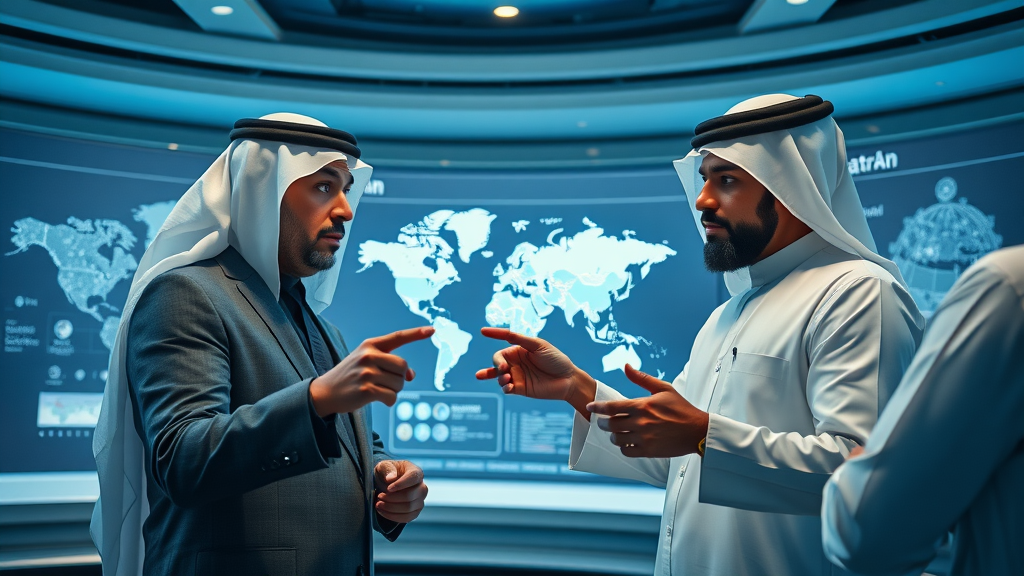
Qatar’s resilience in navigating international disputes and fostering alliances hinges on its willingness to innovate and cooperate beyond traditional frameworks. The country’s strategy intentionally incorporates soft power—particularly through international sports and cultural diplomacy, such as hosting the 2022 FIFA World Cup—to bolster its image and engage global audiences.
This proactive stance offers Qatar ample opportunities while presenting new challenges—balancing regional tensions, responding to changing energy markets, and addressing criticisms related to governance and human rights. The coming years will test whether Qatar’s nuanced approach to international relations continues to yield outsized influence.
What You'll Learn From Exploring Qatar International Relations
- How strategic policies influence Qatar’s foreign affairs
- The impact of key leaders like the foreign minister and education secretary
- Qatar’s unique approach to global mediation
Diving deeper into Qatar international relations equips readers with an understanding of policy impacts, leadership dynamics, and mediation approaches. Discover how strategic planning has allowed Qatar to navigate regional rivalries and global changes with agility.
Frequently Asked Questions About Qatar International Relations
How does Qatar’s foreign minister impact international relations?
The foreign minister serves as the key architect and spokesperson for Qatar international relations. By spearheading multilateral initiatives, brokering global dialogues, and advancing humanitarian outreach, the foreign minister ensures Qatar’s interests are represented on the international stage. This leadership enhances Qatar’s standing and allows it to act as a mediator in disputes that often paralyze other states.
What role does the Al Thani family play in Qatar foreign affairs?
The Al Thani family’s influence permeates every element of Qatar foreign affairs. Their leadership establishes consistent policies prioritizing stability, neutrality, and development. Through their stewardship, Qatar champions innovation in diplomacy and guides the country’s strategic economic and humanitarian initiatives that underpin its global reputation.
- The foreign minister is central to Qatar’s diplomatic strategy, fostering dialogue and collaboration.
- Al Thani family members have shaped Qatar’s direction in foreign affairs for decades.
People Also Ask
What makes Qatar international relations stand out in the Middle East?
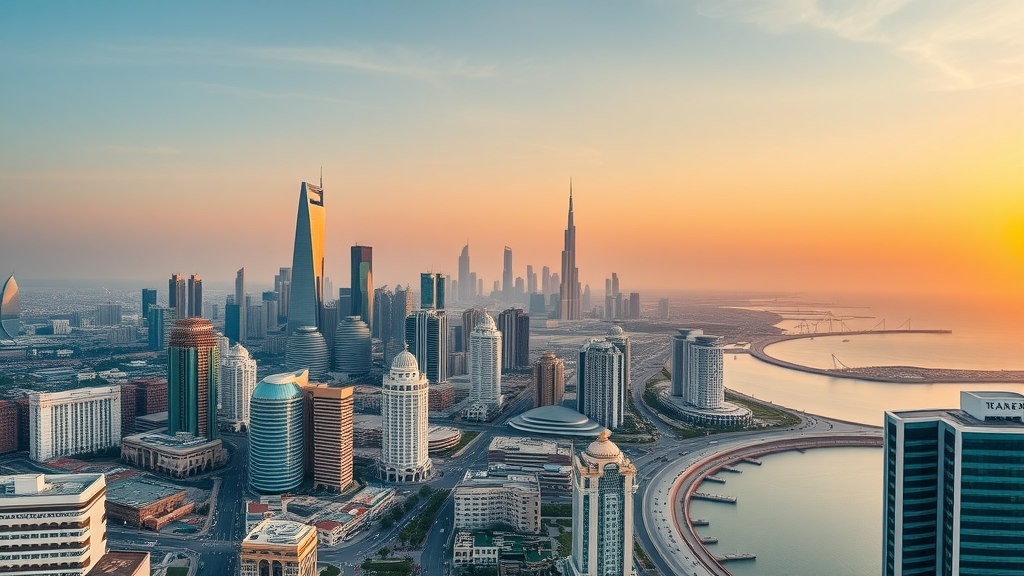
Qatar stands out in the Middle East due to its independent and proactive diplomatic posture. Unlike many regional states, Qatar has carved its path through direct mediation, independent policy-making, and an open embrace of international partnerships. Its ability to maintain relationships with diverse—even adversarial—parties, alongside its advanced humanitarian outreach, makes its approach to diplomacy both distinct and effective.
How has Qatar used education to support its foreign relations strategy?
Education forms a critical pillar of Qatar’s foreign strategy. By hosting branch campuses of elite international universities, investing in global research collaborations, and supporting student exchange programs, Qatar has strengthened its intellectual and cultural ties worldwide. This educational diplomacy, led by the education secretary, broadens mutual understanding and fosters future generations of leaders who appreciate Qatar’s values and perspectives.
What are the most significant achievements of Qatar's foreign ministers?
Qatar’s foreign ministers have a demonstrated record of achievement, from brokering high-stakes peace talks in Afghanistan to facilitating vital aid missions across Africa and Asia. Their dual focus on strategic alliances and crisis diplomacy has elevated the state of Qatar as a catalyst for regional stability and global peacebuilding.
- Qatar’s international relations are distinct due to active mediation and independent policies.
- Initiatives led by the Education Secretary have expanded Qatar’s cultural and academic influence.
- Qatar’s foreign ministers have brokered major international agreements and peace initiatives, raising the country’s global profile.
Final Thoughts on Qatar International Relations and Their Global Significance
Why Understanding Qatar’s Approach Matters for Future Diplomacy
“In a rapidly shifting world, the nuances of Qatar international relations set a precedent for diplomacy rooted in dialogue, innovation, and resilience.”
By pioneering a blend of traditional engagement, modern innovation, and unwavering dialogue, Qatar’s diplomatic strategy serves as a blueprint for navigating tomorrow’s global challenges. Observing Qatar offers invaluable lessons for states seeking relevance amid changing world orders.
Explore More About Qatar International Relations Through In-Depth Analysis
- Examine official foreign ministry releases
- Stay updated with global affairs insights
- Engage with expert commentary and authoritative reports
Qatar’s international relations are characterized by a strategic blend of diplomacy, economic influence, and mediation efforts that extend beyond its geographic size. The nation’s foreign policy is rooted in principles outlined in its Permanent Constitution, emphasizing the peaceful resolution of international disputes and the promotion of sustainable development. (gco.gov.qa)
A notable aspect of Qatar’s diplomacy is its role as a mediator in various global conflicts. The country has facilitated dialogue between opposing parties while maintaining strict respect for national sovereignty and non-interference in internal affairs. This approach has positioned Qatar as a trusted partner in peacebuilding and supporting stability through dialogue and diplomacy. (gco.gov.qa)
Economically, Qatar leverages its substantial energy resources to forge strategic partnerships. As the world’s top exporter of liquefied natural gas, Qatar uses its energy wealth to establish mutually beneficial relationships with global powers and regional blocs. These partnerships are carefully choreographed exercises in political strategy, distinguishing Qatar’s form of economic engagement from mere transactional exchange. (fanack.com)
The Al Thani family’s leadership has been instrumental in shaping Qatar’s foreign affairs. Figures like Sheikh Tamim bin Hamad Al Thani have personified a new era of diplomacy—one defined by outreach, innovation, and a commitment to dialogue. This dynastic approach preserves institutional memory and allows Qatar to act with rare agility on the world stage. (time.com)
Qatar’s foreign policy also emphasizes international cooperation. The nation has contributed personnel to United Nations peacekeeping forces in various parts of the world and has been involved in settling internal crises in countries such as Eritrea and Lebanon. These efforts underscore Qatar’s commitment to achieving global partnership for development and enhancing international development aid. (mofa.gov.qa)
In summary, Qatar’s international relations are marked by a proactive and independent approach, leveraging its wealth, strategic alliances, and diplomatic networks to enhance its global standing and influence.
 Add Row
Add Row  Add
Add 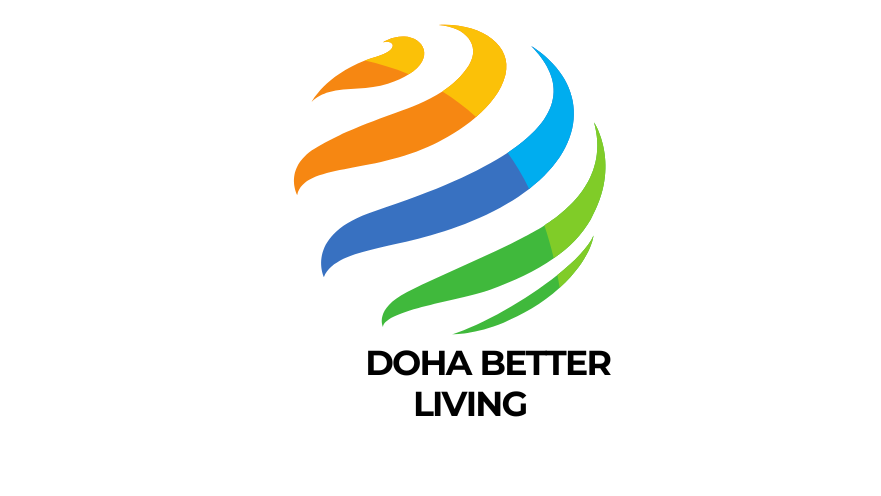
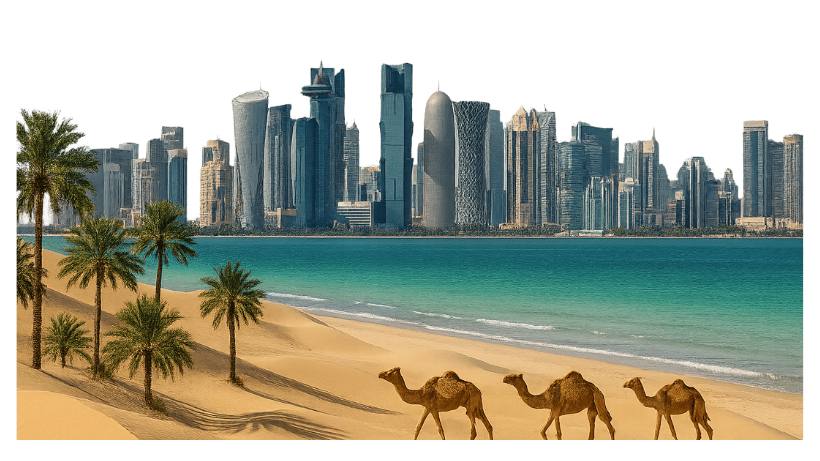


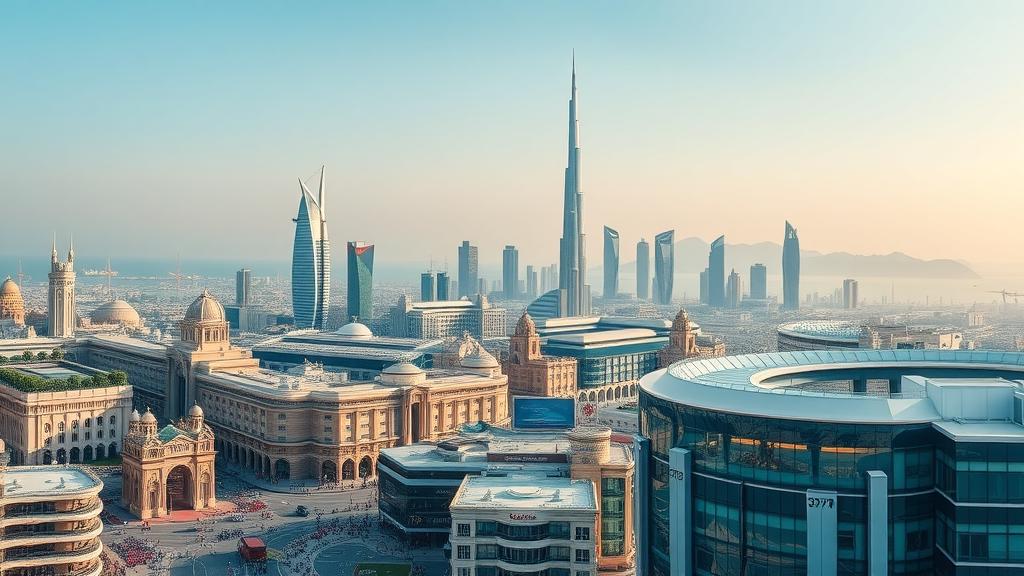
Write A Comment